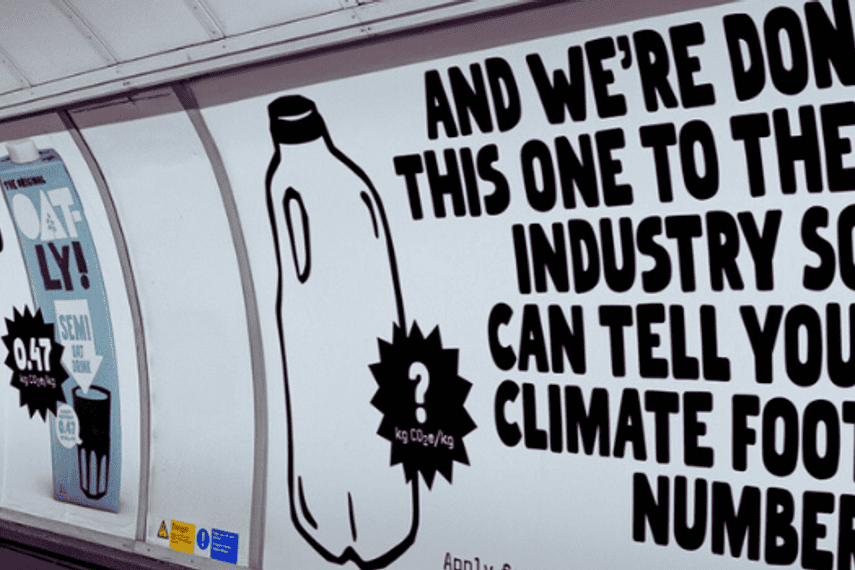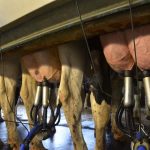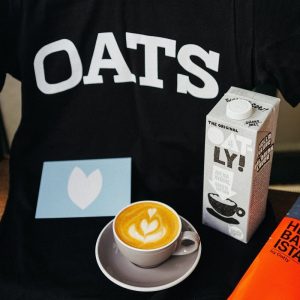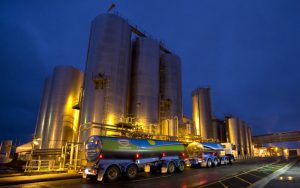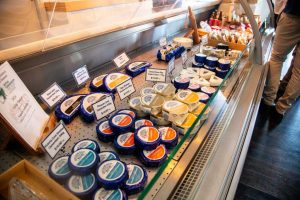
Oatly’s creative director Michael Lee discusses the fight to make climate labelling mandatory.
“If we’re not ruffling feathers, we’re doing something wrong,” Michael Lee, Oatly’s creative director says about the brand’s long history of causing beef with big dairy. “But we don’t want to break the law… we have an army of lawyers.”
As an oat milk company, by definition, its mission is to shift people away from dairy. And it’s not afraid of scandal (it has a dedicated site – fckoatly.com – that documents all boycotts and criticisms).
On Monday (16 October) Oatly took aim at the dairy industry once more, challenging it to include climate labelling on its products. In return, the oat drink company offered free advertising space (up to £121,000) to publish the climate footprint of their product.
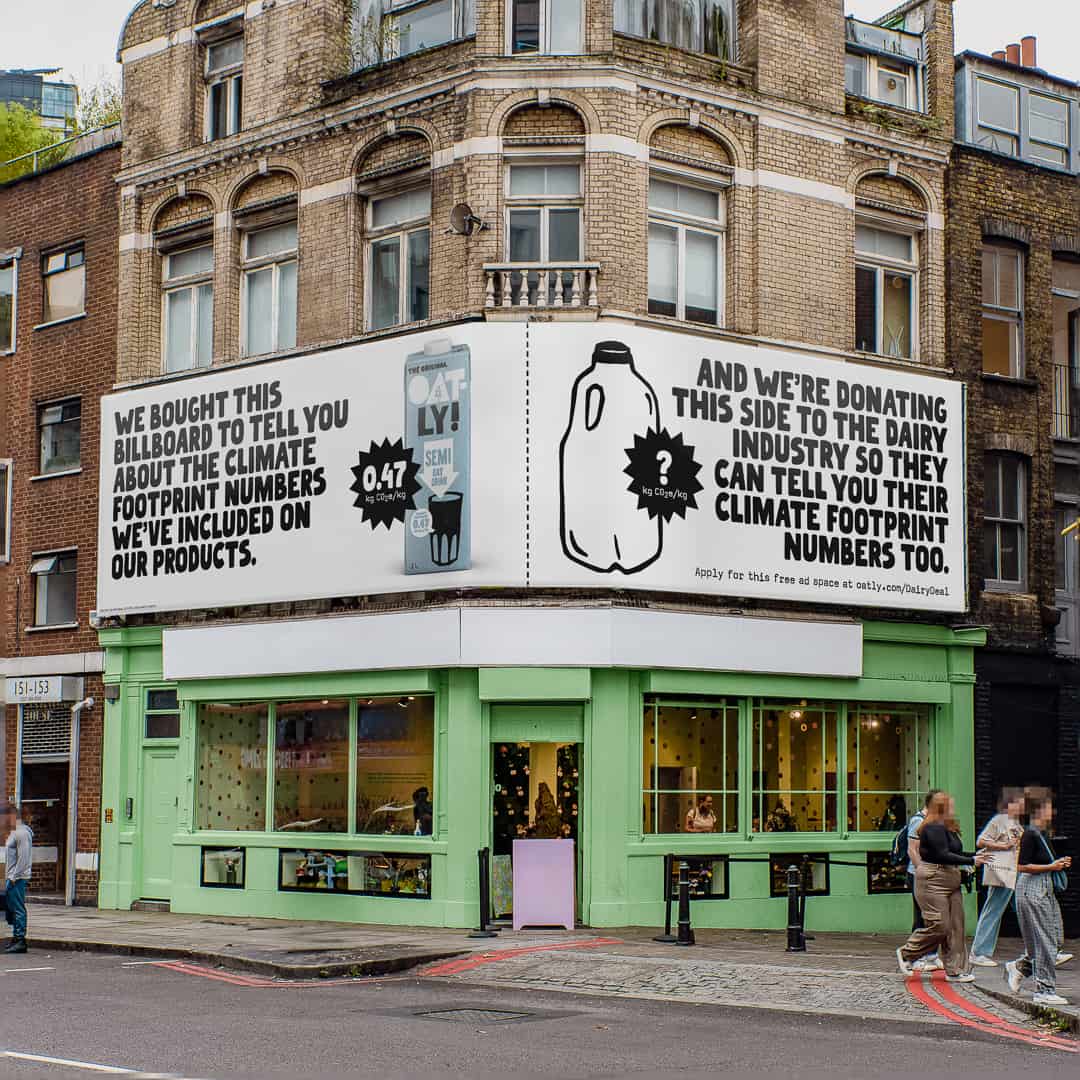
Deploying the snarky tone of voice that’s now synonymous with the brand, Oatly took over adjacent billboards. On the left, it posted its climate footprint (0.47 kg Co2/kg) – while the right was left empty.
To further goad the dairy industry into action, Oatly is hosting a Reddit AMA [Ask Me Anything] on climate footprint labels on Thursday (19 October), inviting a big dairy exec to co-host. Lee claims the dairy industry has, so far, remained mute.
“But there are some days left,” he says hopefully. “We were pretty mindful with the AMA to keep it pretty open. There is no prerequisite for coming out. We want to have an open and honest discussion about climate labelling. If not, we have some plan Bs.”
Lee admits there are challenges ahead. “What happens if a dairy brand takes us up on this offer or if we have to co-host the AMA and things go pearshaped?” he asks. “It’s all part of being open and honest. We need to think through all the scenarios and not be afraid of the discussion.”
Leading by example, Oatly has included climate labelling on all its products in the UK since 2019. “We have nutritional labels to help us make informed choices about our health. Shouldn’t it be the same around the health of the planet?” Lee says. “We decided to show our climate numbers and in a vacuum, there’s nothing to compare it to.”
As part of an ultimate goal to make climate labels mandatory on all food and drink products, Oatly has written a “grey paper”, which makes the case for it, using its experience to set an example.
“To enact real change, we needed to develop a roadmap,” Lee says.
Oatly is using the paper to lobby the UK government and it has written to MPs with the report attached. The Food Data Transparency Partnership, a group made up of the government, industry and experts, is already looking into climate labelling, and Oatly hopes to form a coalition with other food and drink companies to have a voice in that group.
Lee explains that Oatly is further along the process in Germany. “Our coalition called together for carbon labelling has basically developed a standard for carbon labels that can be used in Germany. When the Bundestag came back to us after a long hiatus due to Covid-19, they said they agreed with us. We were then able to say that we had a solution. We’re now working with them to move that forward.
“We’re pushing everywhere. But you take advantage of places where there is an opening. There was an opening in Germany and we created this opening in the UK. It’s something that we will likely do across other markets.”
A work in progress, tune in tomorrow to find out if a big dairy exec takes up Oatly’s offer.
